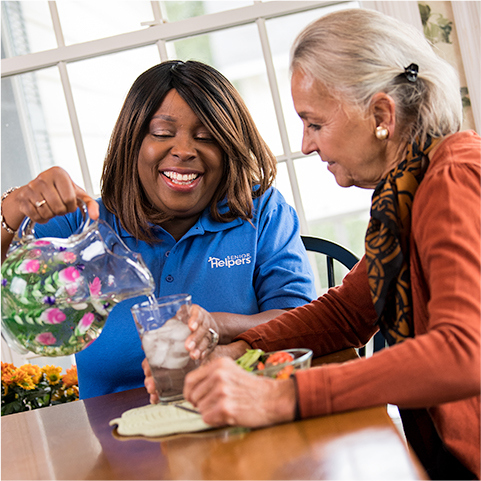Ensuring Quality Sleep
As seniors age, one unexpected difficulty in maintaining a good, healthy and active lifestyle is making sure to get enough good, restful sleep. Seniors may find themselves napping more throughout the day, feeling tired much earlier than usual, or having trouble sleeping uninterrupted through the night. Because sleep is necessary for our bodies and minds to rest, relax, and regenerate, making sure that all the sleep you're getting is both adequate and restful is important.
Poor sleep can be caused by many different factors, and ones common to seniors include side effects from medications, waking to use the bathroom at night, or pain. If you know that your poor sleep is being caused something specific, discussing the causes with your healthcare provider can be a good idea. However, you can also try several different strategies and simple changes in behavior and routine to maximize your success with sleeping soundly.
Our bodies regulate our cycles of sleeping and waking with something called the “circadian rhythm”. There are many outside factors that can affect the circadian rhythm, and knowing that we can try to make it work for our benefit. For example, setting a strict routine of a specific bedtime and a rising time each day can reset our rhythms, making it adjust to those times and cause you to become accustomed to those hours. Avoid taking long or repeated naps throughout the day so that you’re as tired as you can be once bedtime arrives. And after waking, avoid spending long amounts of time awake in bed.
Staying active is another great way to make sure you’re sleeping well. Activity helps to burn off excess energy during the day, and also releases hormones and brain chemicals that help with mood and stress levels, allowing you to maintain a state of relaxation. Going for a walk, swim, hike, bike ride, signing up for an exercise or a dance class, practicing yoga or tai chi, all are great ways to stay active throughout the day so that you’re fully ready to rest and recharge come nightfall.
Another important step is to reduce distractions and discomfort in the bedroom. Your bedroom should be a sanctum, a shrine to restfulness. Lights, sharp noises, and other things can ruin your sleep. The room should be cool, dark, and quiet. Blackout curtains over windows can cut down on light pollution from outside, and leaving any electronic devices out of the room can prevent distractions. A white noise machine, or recordings of rain, ocean waves, or other natural sounds can help to block out unwelcome noise, setting you up for sleep success.
Making sure to limit your liquid intake during the later part of the day is another good strategy. As we age, the size of our bladders decrease and the amount of time one can spend ignoring the urge to use the bathroom gets shorter and shorter. Taking in fluids late in the day can cause restlessness at night with frequent bathroom trips. Set a time to stop drinking more than a few sips of water each night, and work backwards from there if your sleep is still suffering interruptions.
